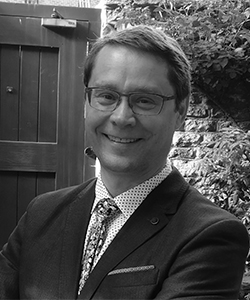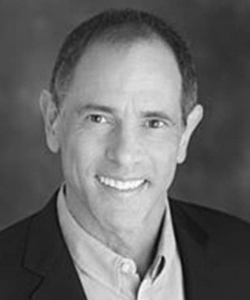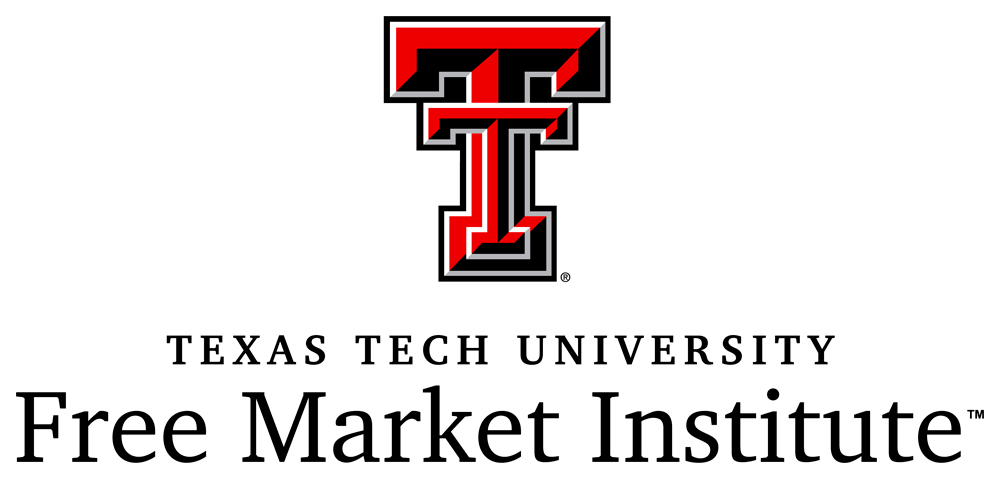Austrian Economics in the 21st Century
About the Program Research Colloquia Research Workshops
Visiting Scholars Summer Research
About the Program
In the 20th century, the Austrian school of economics developed a powerful defense of free enterprise and critique of central planning based on the limitations of individual human knowledge and the potential for human creativity. An Austrian approach to economics is associated with an appreciation for market institutions such as property rights and sound money, a robust theory of entrepreneurship, and the study of business cycles. These insights were developed primarily in the middle decades of the 20th century, against the backdrop of the economic questions and theories of the day. But the past few decades have seen the emergence of new economic methods and areas of study, ranging from "big data" analysis to cultural economics; the resurgence of questions about economic history, economic inequality, and social justice; and increased interest in interdisciplinary work across philosophy, politics, and economics.
This program is a joint venture between Political Theory Project (PTP) at Brown University and Free Market Institute (FMI) at Texas Tech University (TTU) to investigate the continuing relevance of Austrian economics in the 21st century. Is a defense of free markets grounded in intellectual humility and respect for human creativity still relevant today? Does Austrian economics have anything unique left to offer contemporary social science? Through a series of research colloquia and other activities, this project will bring together practitioners of a variety of social scientific approaches to consider whether key Austrian insights still have a role to play in understanding the promise and the pitfalls of a free society.
This program is led by Adam Martin (Agricultural and Applied Economics and Free Market Institute, Texas Tech University) and Daniel D'Amico (Political Theory Project, Brown University) with the financial support of the John Templeton Foundation.
Planned activities include research colloquia and seminars, hosting visiting scholars and post-doc fellows, and funding Ph.D. dissertation fellowships and summer research grants.
Research Colloquia
This research program organizes colloquia which engage and encourage academic scholars to the exploration of the relationship between Austrian economics and contemporary social sciences through discussions among small groups of individuals. FMI and PTP faculty and staff, other scholars at TTU and Brown University, and scholar at other academic institutions from a range of disciplines and expertise are invited to contribute with original research on the following topics:
-
- Philosophy, Politics, and Austrian Economics
- Sociality and Austrian Economics
- Economic History and Austrian Economics
- Contemporary Methods and Austrian Economics
- Inequality in Market and Political Processes
- Marginalized Groups and the Market Process
Research Workshop
The FMI invites scholars, who have working research based on the themes of the program, to visit TTU to deliver presentations as part of the FMI Research Workshop.
-
- Testing Stiglitz: Rent-Seeking and Income Distribution — Stephen C. Miller, Adam-Bibby Chair of Free Enterprise at Troy University
- Are Economic Arguments against Immigration Missing the Boat? The Institutional Effect of the Mariel Boatlift — Claudia Williamson, Probasco Distinguished Chair of Free Enterprise and Professor of Economics at The University of Tennessee at Chattanooga
- Consumer Sovereignty and W.H. Hutt's Critique — Art Carden, Professor of Economics at Samford University
- What Did Adam Smith Mean? The Semantics of the Opening Key Principles in the Wealth of Nations — Bart Wilson, Donald P. Kennedy Endowed Chair in Economics and Law at Chapman University
- The Calculus of Dissent: Bias and Conformity in FOMC Forecasts — Thomas Hogan, Senior Research Fellow at the American Institute for Economic Research
- Leadership and Organizations — Lee Alston, Professor of Economics at Indiana University Bloomington
- The Comparative Endurance and Efficiency of Religion — Anthony Gill, Professor of Political Science at the University of Washington and Distinguished Senior Fellow at the Institute for Studies of Religion
- The Political Economy of Substance Misuse During the COVID-19 Pandemic — Audrey Redford, Assistant Professor of Economics at Western Carolina University
- Cloudy with a Chance of Munchies: Assessing the Impact of Recreational Marijuana Legalization on Obesity Using a Synthetic Control Approach — Raymond March, Assistant Professor at North Dakota State University and faculty fellow at the NDSU Center for the Study of Public Choice and Private Enterprise
- The Socialist Calculation Debate's Centennial: New Challenges, State Capacity, and State Capitalism — Leonid Krasnozhon, Associate Professor of Economics and holder of the Chase Minority Entrepreneurship Distinguished Professorship at Loyola University New Orleans
- Exploring How Regulation Shapes Technology Startups — Liya Palagashvili, Assistant Professor of Economics at State University of New York-Purchase
- Rational Chef Theory — Ennio Piano, Assistant Professor of Economics at Middle Tennessee State University
- The Political Economy of Propaganda — Abigail Blanco, Assistant Professor of Economics at University of Tampa
- Were U.S. Banks Really Stable After WWII? — Christy Chapin, Associate Professor of History at the University of Maryland Baltimore County
- A Hayekian Open Community — Chad van Schoelandt, Assistant Professor of Philosophy at Tulane University
- The Invisible Contract: Agreement and Spontaneous Order in Social Life — John Thrasher, Assistant Professor, Smith Institute for Political Economy and Philosophy at Chapman University
- Quasi-legal Property Rights — Ilia Murtazashvili, Assistant Professor, Graduate School of Public and International Affairs at the University of Pittsburgh
- What is Still Wrong with the Austrian School of Economics? — Peter Boettke, University Professor of Economics and Philosophy at George Mason University
Visiting Scholars
Distinguished scholars from other academic institutions visit TTU to collaborate with FMI faculty and staff on research projects, deliver public lectures and presentations of working research, and offer feedback on ongoing research projects that contribute to the output of the program.
Spring 2021
 Bart Wilson, Donald P. Kennedy Chair in Economics and Law at Chapman University, served as a
Templeton Visiting Scholar during March 2021.
Bart Wilson, Donald P. Kennedy Chair in Economics and Law at Chapman University, served as a
Templeton Visiting Scholar during March 2021.
Prof. Wilson is also a founding member of the Economic Science Institute and the Director of the Smith Institute for Political Economy and Philosophy at Chapman University. He is the author of the book The Property Species: Mine, Yours, and the Human Mind (Oxford University Press, 2020) and co-author of the book Humanomics: Moral Sentiments and the Wealth of Nations for the Twenty-First Century (Cambridge University Press, 2019).
During his visit, Prof. Wilson participated in several activities that contribute to the output of the Austrian Economics in the 21st Century program. During his visit, he delivered a public lecture as part of the FMI Public Speaker Series, presented working research as part of the FMI Research Workshop, and led a graduate seminar.
In addition to his formal activities, Prof. Wilson interacted with current FMI Ph.D. fellows providing informal guidance on their ongoing and planned research projects.
 William J. Luther, Assistant Professor of Economics at Florida Atlantic University University, served
as a Templeton Visiting Scholar during February 2021. Dr. Luther also serves as the
Director of the American Institute for Economic Research's Sound Money Project.
William J. Luther, Assistant Professor of Economics at Florida Atlantic University University, served
as a Templeton Visiting Scholar during February 2021. Dr. Luther also serves as the
Director of the American Institute for Economic Research's Sound Money Project.
During his visit, Dr. Luther delivered a public lecture on bitcoin as part of the FMI Public Speaker Series.
Fall 2020
 Lee J. Alston, Professor of Economics at Indiana University Bloomington, served as a virtual Templeton
Visiting Scholar during October 2020.
Lee J. Alston, Professor of Economics at Indiana University Bloomington, served as a virtual Templeton
Visiting Scholar during October 2020.
Prof. Alston is also research associate at the National Bureau for Economic Research. He is the author or co-author of 8 books, including Institutional and Organizational Analysis: Concepts and Applications (Cambridge 2018).
Prof. Alston participated in several activities that contributed to the output of the Austrian Economics in the 21st Century program. He led a graduate seminar on the book mentioned above and, in February 2021, Prof. Alston presented a working research as part of the FMI Research Workshop.
 Leo Krasnozhon, Associate Professor of Economics at Loyola University New Orleans, will serve as
a Templeton Visiting Scholar during September 2020. Prof. Krasnozhon also serves as
a faculty advisor to the Loyola Economics Club.
Leo Krasnozhon, Associate Professor of Economics at Loyola University New Orleans, will serve as
a Templeton Visiting Scholar during September 2020. Prof. Krasnozhon also serves as
a faculty advisor to the Loyola Economics Club.
During his visit, he presented working research on the Socialist Calculation Debate as part of the FMI Research Workshop.
In addition to his formal activities, Prof. Krasnozhon interacted with current FMI Ph.D. fellows providing informal guidance on their ongoing and planned research projects.
Summer Research
This research program provides support to FMI and PTP faculty and staff, other scholars at TTU and Brown University, and scholar at other academic institutions to develop research projects that will contribute to the output of the overall program.
-
- Systemic Racism, Causation, and Disparate Criminal Justice Outcomes — Summer 2021 — Daniel J. D'Amico, Daniel J. D'Amico, Associate Director of Political Theory Project at Brown University
- Analytic Narratives in Political Economy — Summer 2021 — David Skarbek, Associate Professor of Political Science at Brown University (co-authored with Emily Skarbek)
- Rethinking Historicism and Austro-Liberalism — Summer 2021 — Anthony Gregory, Post-doctoral fellow at The Political Theory Project at Brown University
- Modern Topics, Methods, and Subfields: The Potentials for an Enduring Relevance of Austrian Economics — Summer 2020 — Daniel J. D'Amico, Daniel J. D'Amico, Associate Director of Political Theory Project at Brown University
- Self-Governing Financial Institutions: Lessons from the High Middle Ages — Summer 2020 — Emily Skarbek, Associate Research Professor in the Political Theory Project at Brown University
- The Role of the Federal Government in Mass Incarceration — Summer 2020 — Danilo Freire, political scientist and data analyst based in São Paulo, Brazil
- Cartel Federalism and Prison Growth — Summer 2019 — Daniel J. D'Amico, Associate Director of Political Theory Project at Brown University
- The Diversity of Prison Governance: Why Life on the Inside Differs around the World — Summer 2019 — David Skarbek, Associate Professor of Political Science at Brown University
- The Political Economy of Urban Growth and the Chicago Fire of 1871 — Summer 2019 — Emily Skarbek, Associate Research Professor in the Political Theory Project at Brown University
[Back to Research Programs] [Back to Top]

Free Market Institute
-
Address
Texas Tech University - Box 45059 - Lubbock, TX - 79409-5059 -
Phone
806.742.7138 -
Email
free.market@ttu.edu
